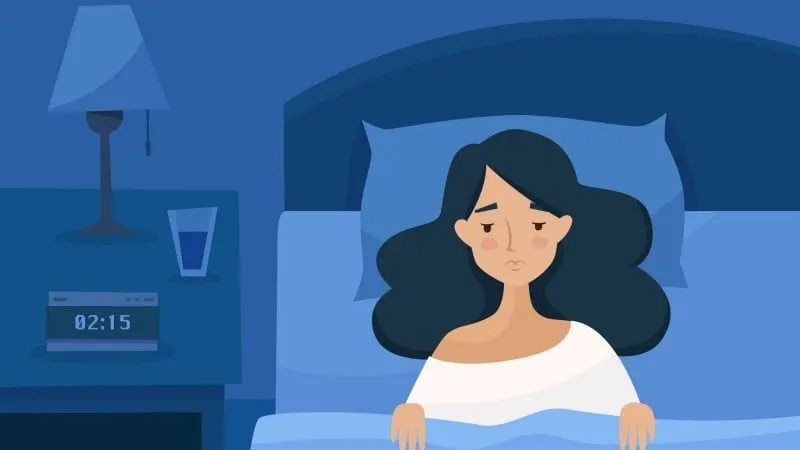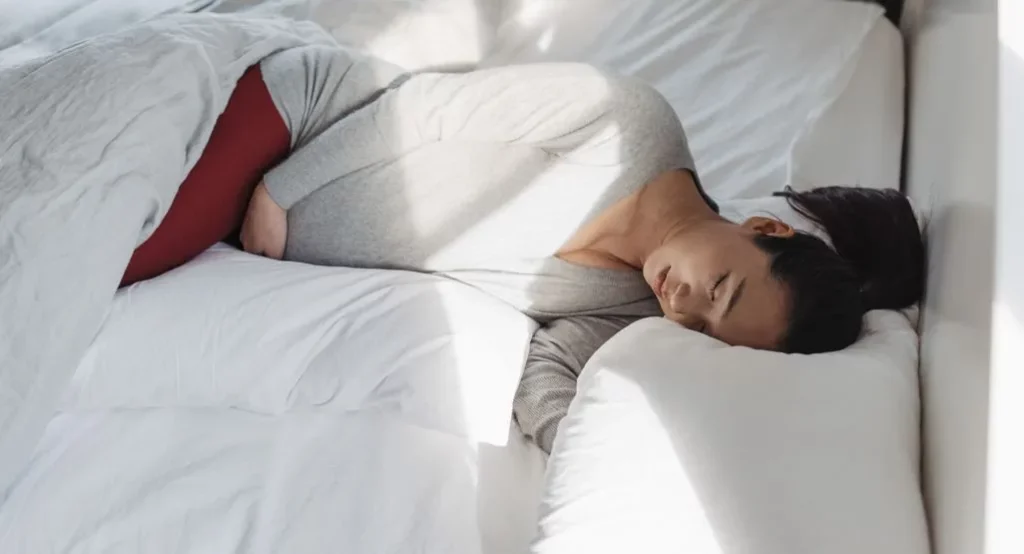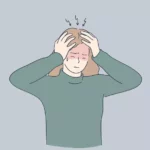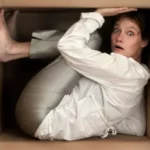What is Insomnia?
Contents
Insomnia is the most common sleep disorder, where person hard to fall asleep, which affects about 35% of adults.
Not proper sleep or waking up too early can become a serious issue, like high risk of accidents, and long-term health effects.
It is more occur frequently in women than men, which is highly associated with hormonal changes that are unique to women.
Daytime sleepiness is defined as difficulty staying awake or alert, which overall affects your health and high risk of mortality.
Basically, insomnia is characterized by difficulty in:
- Difficulty in falling asleep
- waking during sleep at night
- waking early than desired
A study identified 15.4% spreading of insomnia and about 30% suffer from occasional insomnia (1).
About 10% and 30% of adults may face insomnia at any given point in time and up to half of the people have insomnia in a given year (2).
Types of insomnia
Acute insomnia – Many adults experience short-term (acute) insomnia, which lasts for days or weeks, as a result of stress.
Acute insomnia is also known as stress-related insomnia.
Chronic insomnia – It lasts for longer than a month, known as long-term insomnia, which is also allied with medical issues or certain drug use.
This can happen due to many reasons including:
- Persistent stress
- trauma
- work stress
- poor sleep habits
- medicine use
- mental health issues
The study suggests that people with high levels of stress or shifts in the levels of cytokines are more likely to have chronic insomnia.
Transient insomnia – It can last for less than a week, it can be caused by changes in the sleep environment, sleep timing, depression, and other disorders.
This result leads to impaired mental performance which is similar to those of sleep deprivation.

Reason
There are many potential reasons for insomnia, and other multiple factors can be involved are:
- Stress
- travel or work schedule
- exercise, (exercise-induced insomnia is common in athletes)
- caffeine intake
- late night sleep
- hyperarousal
- certain medicine, herbs used like – antidepressants, asthma, modafinil, etc
- smoking, and excessive alcohol intake
- poor sleep hygiene
- hormonal changes in women (3), such as menopause, and menstrual cycle
- pregnancy, and the birth of a child
- eating too heavy before bedtime, which leads to discomfort
Some medical conditions also be a reason for insomnia in both men and women which include:
- Depression and anxiety
- Sleep-related disorders such as – sleep apnea, and upper airway resistance syndrome
- chronic pain
- Alzheimer’s disease
- genetic condition (4)
- diabetes
- heart diseases
- cancer
- gastroesophageal reflux disease (GERD)
- overactive thyroid
- certain mental disorders (dementia, bipolar disorder, ADHD (5), past related events, etc)
- lower back pain
- Restless legs syndrome (a sleep disorder)
- Parkinson’s disease
light pollution – A 2018 Korean study found that exposure to artificial light at night is hard to fall asleep and more likely to use sleep medicine.
Its believed that insomnia is caused by a state of hyperarousal that disrupts falling asleep or staying asleep.
Hyperarousal is a stress-related disorder, that occurs when a person suddenly kicks into a fight-or-flight response or high alert.
Who are at high risk of insomnia?
It affects all ages of people, but some people are more at high risk of insomnia including:
- Older people, especially those above 60
- who are under a lot of stress
- history of mental health disorders like depression
- irregular shift changes due to work
- traveling through different time zones (6)
- chronic diseases such as diabetes, kidney, lung, and heart disease
- alcohol or drug use disorder
- smokers
- work stress
Signs and symptoms
Here are common and new research-based signs and symptoms (7) these include:
- Difficulty in falling asleep, a most seen and common symptom
- daytime stress
- difficulty falling asleep despite the desire to sleep
- trouble in focus, and concentrating
- daytime sleepiness
- feel weak, or fatigue
- irritable, aggressive
- walking up too early or during the mid-night
Anxiety symptoms may well lead to insomnia, and daytime sleep may also lead to more chances of accidents.
Depression, Anxiety, and Insomnia
Anxiety and depression both are the most common mental disorder, it is estimated that 5% of adults suffer from depression globally.
Women are more at risk of depression than men (8).
Depression is a common and serious problem that impacts the way a person thinks, feels, and behaves.
Studies have shown that chronic insomnia is a risk factor for the development of depression, as well as a prodrome of (MDE).
NOTE: Both anxiety and depression are closely linked with insomnia, but how? (9).
Poor sleep may create difficulty in regulating emotions, these results, people are more vulnerable to depression in the future.
Anxiety may also contribute to disturbing sleep or difficulty in falling asleep, which leads to insomnia or nightmares (10).
However, insomnia may also worsen the symptoms of anxiety disorder or prevent recovery.
Insomnia and pregnancy

Women can experience it during stages of pregnancy, which is often more common in the first and third trimesters (11).
There are many reasons which may a reason for insomnia during pregnancy (12) including:
- nausea and vomiting
- abdominal discomfort
- back pain
- heartburn
- shortness of breath
- frequent urination
- stress
- anxiety for pain, delivery
How to Diagnose it?
Insomnia diagnosis varies for individuals, also doctor may also ask you questions like what you feel during sleep.
Your healthcare provider may perform these tests on you to search insomnia main causes including:
- Physical exam and past medical history
- sleep history includes – sleep habits, medication, alcohol, nicotine, caffeine, co-morbid illness, and sleep environment.
- The doctor may also ask about your medication (certain medications may affect your sleep)
- A sleep schedule, where you keep track – how long and how well you sleep, and how sleepy you feel during the day.
- Polysomnography (PSG) is a type of sleep study for screening sleep disorders.
The doctor may perform some tests on you which may become the reasons for sleep apnea (13) including:
- Blood tests
- thyroid hormone test
- EEG (wires are attached to your scalp that will monitor brain waves)
- EOM (recording eye movement)
Also, doctors measure insomnia using the Athens insomnia scale, which measures using 8 different parameters related to sleep.
In a study, results showed mild and severe insomnia patients with a group diagnosed with depression or congestive heart failure.
Treatment/Management
Prevention and treatment of insomnia may require a combination of cognitive behavioral therapy, medications (14), and lifestyle changes.
Cognitive behavioral therapy
CBT is a first-line treatment because it does not carry health issues, and has been found to be effective for chronic insomnia.
Studies have shown that behalf of their results, CBT is very effective in sleep onset latency, (15) maintaining a sleep pattern during the night (16).
CBT also improve IS symptoms in patients with breast cancer, chronic pain, and other medical issues (17)
Medication
Some medications to treat insomnia include antidepressants, melatonin, and Benzodiazepine receptor agonists (BZRAs) (18)
However, this medication should be prescribed, and also use for only the short term.
There are many medications (like sleeping tablets) to treat, but it does not completely cure insomnia.
Most doctors and nurse practitioners tend not to recommend sleeping tablets, because it may lead to. include:
- can be addictive
- they don’t promote restless sleep
- not fixing the root of the problem
Stimulus Control
This treatment aim is to strengthen the link between the bed and sleep.
And to weaken the link between the bed and arousing activities like using phones, watching tv, etc, that interfere with sleep.
Research indicates that SC has a well-established treatment for insomnia (19).
Lifestyle changes
So you can naturally cure your insomnia by simple lifestyle changes in habits which include:
- wake up and go to sleep at a specific time, which maintains your sleep pattern
- exercise, which makes you tired before you go to bed
- don’t work in your bedroom or just before sleep
- avoid watching tv or your phone, because it suppresses melatonin production (a hormone that makes us feel sleepy)
- Avoiding large meals, beverages, alcohol, and nicotine before bedtime
The bedroom environment is as vital as sleeping habits, which should be cool, dark, and free of devices, such as clocks, phones, or TV.
NOTE: the best temperature has been found to be between 15.5 to 20 degrees.
Use thick curtains to block out street lights or morning sunlight.
People often have insomnia due to changing job schedules, so improving sleep hygiene are good option to take sufficient sleep.
Check Out – Common Things That Can Be Reasons For Night Sleeplessness
If you still experience insomnia or trouble sleeping, then you should consult your doctor.
Relaxation techniques
A variety of relaxation techniques can be used in the treatment of insomnia, including yoga, and meditation.
The aim of relaxation is to reduce the patient’s inner anxiety, stress, and other mental issues.
When a person involves in deep-breathing exercises, which relaxes muscle groups (arms, neck, back, legs).
Patients to be attention to the feeling of relaxation and meditation after or during the process, which overall relaxes their mental and physical health.
Sleep restriction and compression
In this approach, the focus is on reducing the time the patients wake up during the night (20).
Sleep restriction significantly reduces the amount of time spent in bed, while sleep compression is a more gradual process.
But both techniques are the same goal – waking up less in bed each night.
BOTTOM LINE
It is the most common sleep disorder, when a person hard to fall asleep, and wakes up at midnight at various times.
Insomnia can lead to daytime sleepiness, accident, and headache, however, some illnesses can this condition worse.



